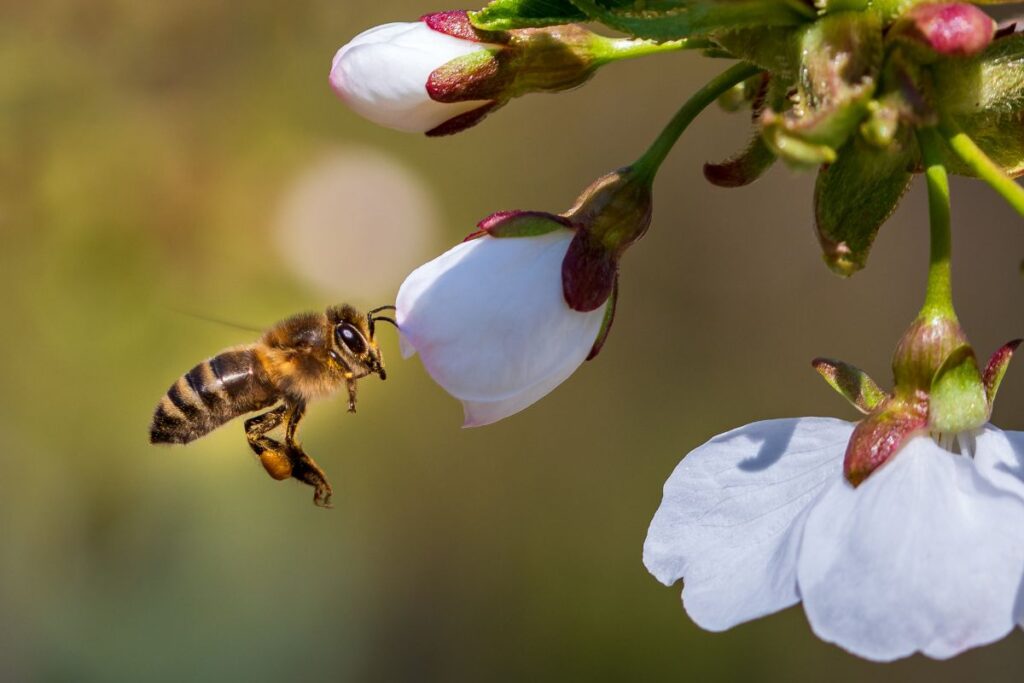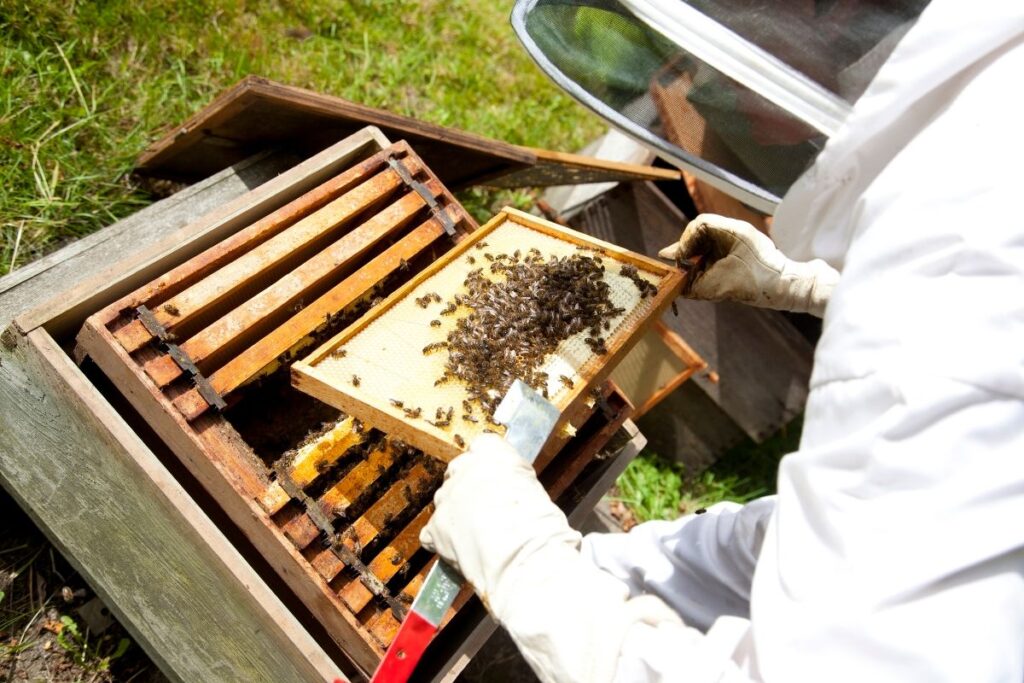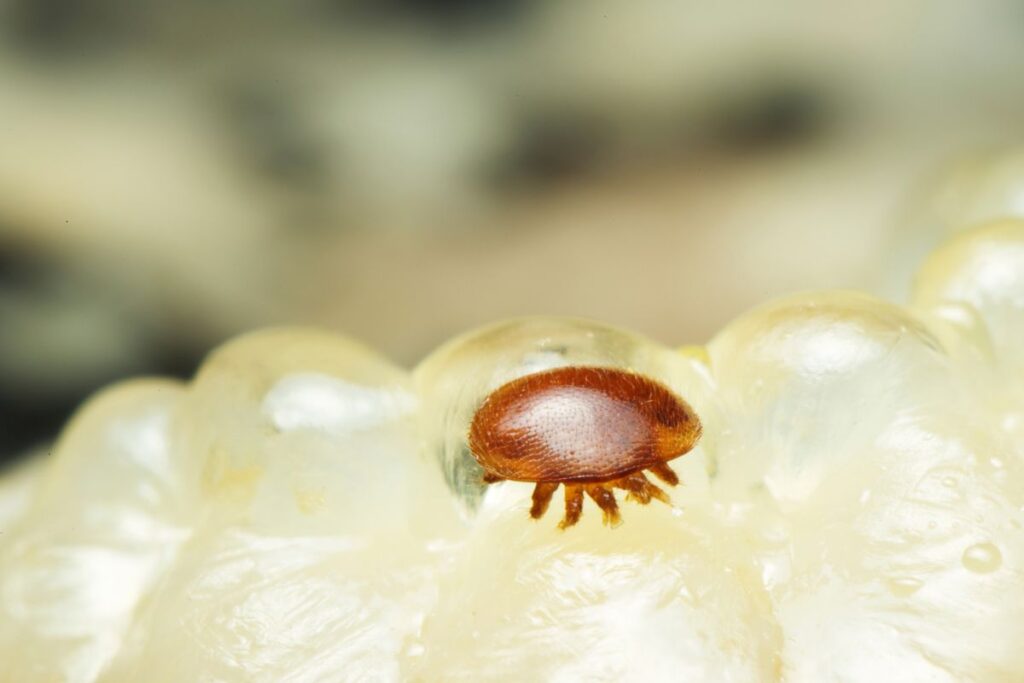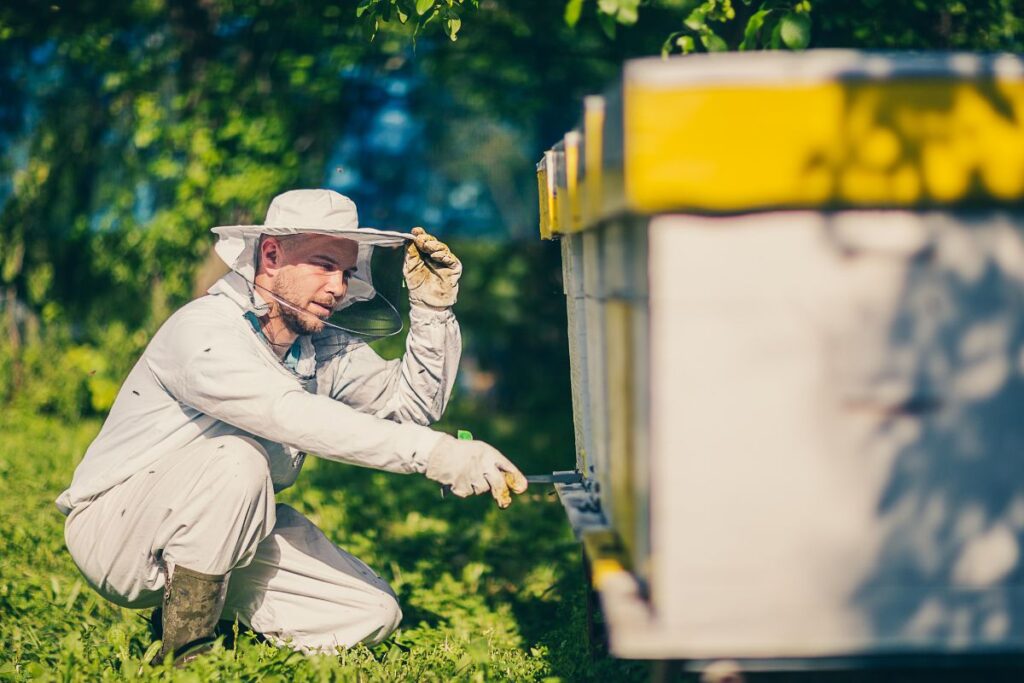Beekeeping can be a rewarding and fascinating hobby or profession, but it requires a lot of hard work and dedication to keep your bees healthy and productive. One of the most important aspects of beekeeping is maintaining the health of your bee colonies and preventing diseases. In this post, we will discuss some best practices for maintaining bee health and preventing diseases.
1. Proper Nutrition
One of the best ways to maintain bee health and prevent diseases is to provide proper nutrition to your bees. Bees require a balanced diet of carbohydrates, proteins, vitamins, and minerals to stay healthy and productive.
A good source of carbohydrates for bees is nectar and honey. For proteins, bees rely on pollen. Pollen provides essential amino acids that are necessary for bees to produce healthy brood and develop their immune systems.
In order to ensure that your bees have access to a variety of pollen sources, you may need to plant specific types of flowers or provide pollen supplements. You may also need to supplement their feed if natural sources are not available.

2. Regular Inspections
Regular inspections of your bee colonies are essential for preventing and identifying diseases. During inspections, you can observe the behavior of your bees, check for signs of disease, and ensure that your colonies are healthy and productive.
Inspect your colonies at least once a month during the active season and more frequently during the spring and summer. Look for signs of stress, disease, and pests such as mites.
It’s important to note that some diseases are not easily visible, so it’s crucial to learn about the different types of diseases and their symptoms.

3. Pest Management
Pests like Varroa mites can weaken or kill your bee colonies. It’s important to monitor and control these pests to prevent the spread of disease.
There are different types of Varroa mite treatments available, including chemical and non-chemical methods. It’s essential to choose a treatment method that’s appropriate for your bee colony and the time of year. We absolutely love the free Varroa resources from the Honey Bee Health Coalition.
When main issues get out of control, wax moths or small hive beetles(SHB) can destroy what’s left of your colony. One of the best ways to control wax moths or SHB is to keep your colonies strong and healthy. They tend to target weak or neglected colonies.

4. Cleanliness and Sanitation
Keeping your equipment and hive clean is crucial to maintaining bee health. Proper sanitation can help prevent the spread of diseases and pests, especially diseases like American Foul Brood.
Make sure to clean your equipment and hives regularly. Remove old combs and replace them with new ones. Disinfect your tools and equipment between uses.
Also, make sure to practice good personal hygiene when handling your bees. Wear gloves, protective clothing, and wash your hands frequently to prevent the spread of diseases between colonies.
5. Collecting Data
Collecting data is crucial to planning for the future of your beekeeping operation. During every inspection, you should keep track of bee population, honey production, pest and disease infestations, and other relevant data.
By keeping track of this data, you can identify trends, predict potential problems, and make informed decisions about your beekeeping operation.
It’s important to note that there are different methods for collecting and analyzing data, including paper records and digital tools. Choose a method that works best for you and your operation.

Maintaining bee health and preventing diseases is an ongoing process that requires dedication and hard work. By following these best practices, you can help ensure the health and productivity of your bee colonies and prevent the spread of disease.
Remember to stay up to date on the latest research and news on bee health and disease prevention. And always collect data and refer to it while planning for future seasons. With these best practices, you can enjoy a successful and rewarding beekeeping experience.
